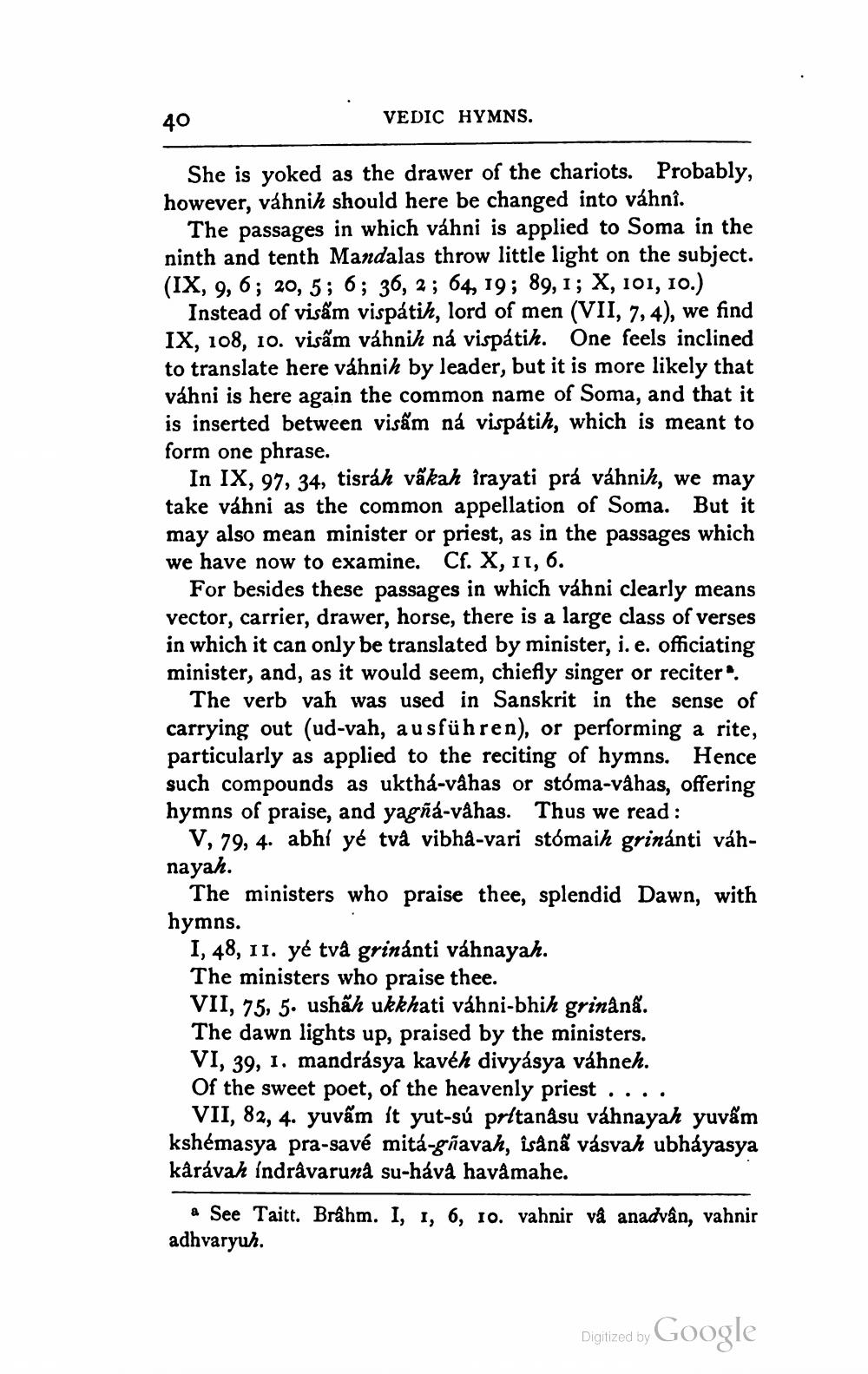________________
40
VEDIC HYMNS.
She is yoked as the drawer of the chariots. Probably, however, vahnih should here be changed into váhnî.
The passages in which váhni is applied to Soma in the ninth and tenth Mandalas throw little light on the subject. (IX, 9, 6; 20, 5; 6; 36, 2 ; 64, 19; 89,1; X, 101, 10.)
Instead of visām vispatih, lord of men (VII, 7,4), we find IX, 108, 10. visãm váhnih ná vispatih. One feels inclined to translate here vahnih by leader, but it is more likely that váhni is here again the common name of Soma, and that it is inserted between visấm ná vispatih, which is meant to form one phrase.
In IX, 97, 34, tisráh vãkah irayati prá váhnih, we may take váhni as the common appellation of Soma. But it may also mean minister or priest, as in the passages which we have now to examine. Cf. X, 11, 6.
For besides these passages in which váhni clearly means vector, carrier, drawer, horse, there is a large class of verses in which it can only be translated by minister, i.e. officiating minister, and, as it would seem, chiefly singer or reciter.
The verb vah was used in Sanskrit in the sense of carrying out (ud-vah, ausführen), or performing a rite, particularly as applied to the reciting of hymns. Hence such compounds as ukthá-vâhas or stóma-váhas, offering hymns of praise, and yagñá-váhas. Thus we read:
V, 79, 4. abhi yé två vibhå-vari stómaih grinánti váhnayah.
The ministers who praise thee, splendid Dawn, with hymns.
I, 48, 11. yé två grinánti váhnayah. The ministers who praise thee. VII, 75, 5. ushấh ukkhati váhni-bhih grinânã. The dawn lights up, praised by the ministers. VI, 39, 1, mandrásya kavéh divyásya váhneh. Of the sweet poet, of the heavenly priest ....
VII, 82, 4. yuvām it yut-sú pritanåsu váhnayah yuvấm kshémasya pra-savé mita-gñavah, isânã vásvah ubháyasya kârávah indravaruna su-hávà havâmahe.
a See Taitt. Brâhm. I, I, 6, 10. vahnir vå anadvân, vahnir adhvaryuh.
Digitized by Google




